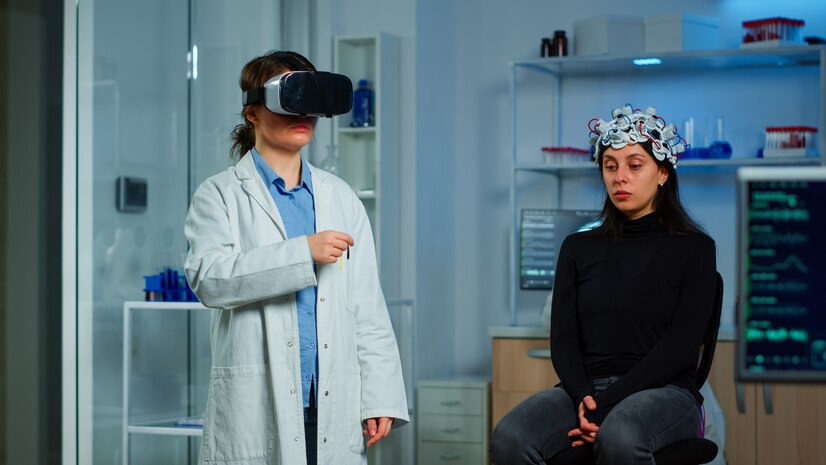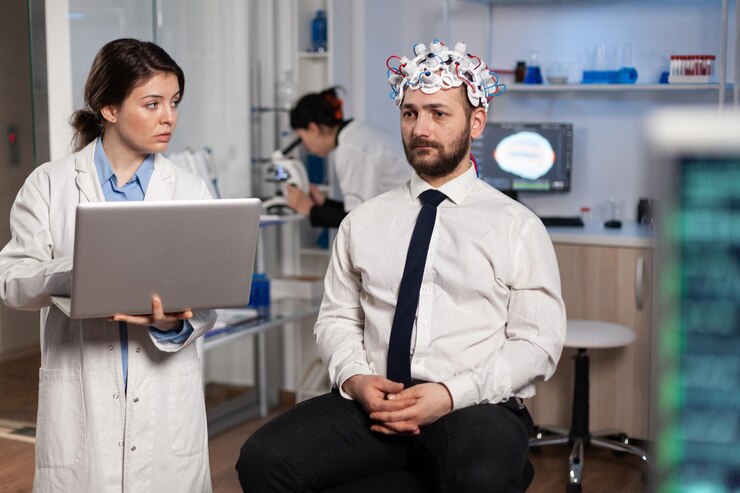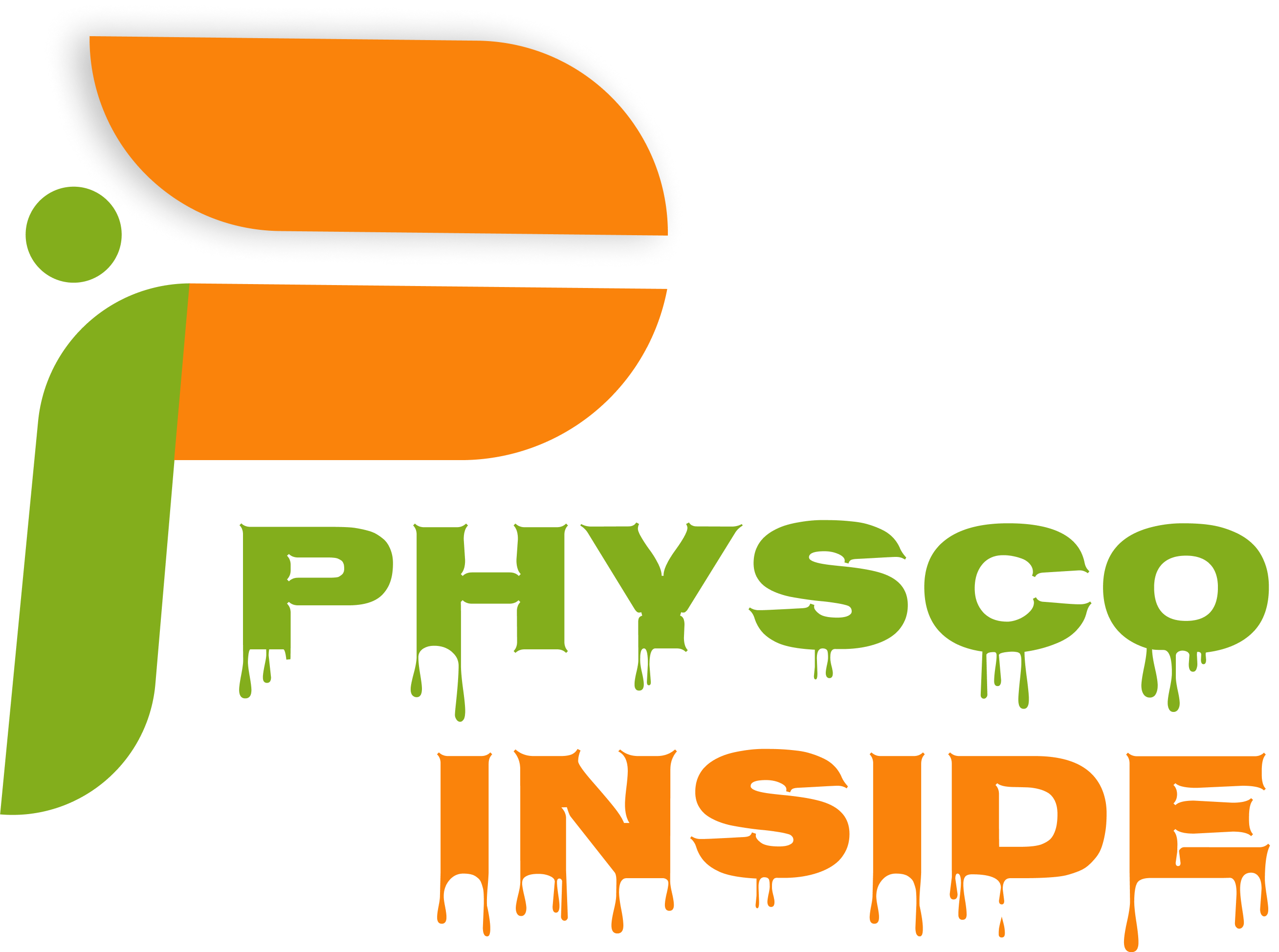1) Introduction
In the present Quick-moving world, Technology is Transforming each part of our lives, from how we impart to how we deal with our Health. The field of Mental Health is no Absolution. Imaginative Technologies are Reshaping mental health care, offering better Approaches to Analyzing, treating, and backing people with Opposing Mental health Challenges. This article investigates the Convergence of Mental Health and Technology, digging into Progressions in Artificial Intelligence (AI), Virtual Reality (VR), and Digital apps. These State-of-the-art Instruments are changing Customary works, making Mental health care more open, Proficient, and Customized than at any time in recent memory.

2) Overview of Mental Health and Technology
2.1) Definition and Significance
Incorporating Technology into mental health care is changing the way that we Comprehend, analyze, and treat Mental Health conditions. The Utilization of Innovative Technologies in this field isn’t simply a pattern but a need in our undeniably Digital world. Utilizing Technology allows mental health professionals to give more Proficient, Customized, and open Consideration to those out of luck.
2.2) The Significance of Integrating Technology
The Coordination of Technology in mental health care is critical in light of multiple factors. First and Foremost, it further develops Admittance to mind, particularly for people in remote or Underserved regions. The Technology Disposes of Geological Hindrances, Permitting patients to Interface with mental health professionals from the comfort of their homes. Furthermore, it improves the Exactness of Analyses and Therapy plans through Information-driven experiences. By using Progressed Algorithms and AI, Mental health professionals can all the more likely Comprehend patients’ circumstances and design medicines as needed. Thirdly, Technology offers new roads for Therapy and backing, making mental health care Captivating and Compelling.
2.3) Key Areas of Effect
- Artificial Intelligence (AI) in Psychiatry: AI Algorithms are being Utilized to examine patient information, Anticipate Mental Health issues, and Customize Therapy plans. AI Chatbots offer quick help and direction, making mental health care more open.
- Virtual Reality (VR) Therapy: VR Technology is Utilized for Openness Therapy, helping patients stand up to and deal with their feelings of Trepidation in a controlled climate. This Inventive Methodology is especially powerful for dealing with conditions like PTSD and anxiety Disorders.
- Digital Mental Health Apps: Versatile applications offer different devices for Mental Health management, including mindset following, Reflection guides, and Therapy meetings. These applications provide a huge help, making Mental Health care more Advantageous and easy to use.
- Electronic Health Records (EHR): EHR Frameworks smooth out the Paperwork and sharing of patient data, working on the Coordination of care among Medical Experts.
By Knowing these Mechanical Progressions, the field of mental health care is Developing to address the issues of a different and carefully Associated Populace.
3) Electronic Health Records in Mental Health
3.1) Mental Health Electronic Health Records (EHR)
3.1.1) Advantages of using EHR for Mental Health Professionals
Electronic Health Records (EHR) offer various advantages for Mental Health experts. They smooth out the Documentation Interaction, further develop Accuracy, and save time, Permitting Clinicians to zero in more on Persistent Consideration.
3.1.2) How EHRs Improve Patient Care and Data Management?
EHRs improve patient Consideration by giving Far-reaching, ongoing Admittance to patient Narratives, Therapy plans, and progress notes. This Availability guarantees Congruity of care, Diminishes mistakes, and works with Better-educated Clinical choices.
3.2) Mental Health Electronic Medical Records (EMR)
3.2.1) Differences between EHR and EMR
While EHRs and Electronic Medical Records (EMR) are Frequently utilized reciprocally, key contrasts exist. EHRs are intended to be shared across various medical services settings, offering a comprehensive perspective on a patient’s Health. EMRs, be that as it may, are Digital forms of paper diagrams inside a lonely practice.
3.2.2) Specific Applications of EMR in Mental Health
EMRs in mental health settings are utilized to follow patient visits, oversee medicine timetables, and report Therapy meetings. They additionally support the coordination of symptomatic apparatuses and Therapy plans, improving the general nature of mental health care.

4) AI in Mental Health
4.1) Artificial Intelligence in Psychiatry
Artificial Intelligence is revolutionizing mental practices by offering new devices for conclusion, Therapy, and patient help. Artificial Intelligence algorithms can dissect huge measures of information to distinguish designs and foresee mental health conditions with more noteworthy exactness than conventional techniques. Current applications remember AI models that help for diagnosing discouragement, uneasiness, and different problems. Prospects are considerably seriously vitalizing, with Artificial Intelligence possibly empowering customized Therapy plans custom-made to individual patients’ requirements.
4.2) AI Mental Health Apps
AI-driven Mental Health applications are turning out to be progressively famous, offering clients available help readily available. Applications like Woebot, Wysa, and Replika use Artificial Intelligence to give ongoing mental health help. These applications offer different highlights, from temperament following to cognitive-behavioral therapy (CBT) works. While these apparatuses make mental health support more available, they additionally accompany difficulties, for example, guaranteeing client information security and the exactness of AI proposals.
4.3) Artificial Intelligence (AI) Talk Therapy
AI is additionally making progress in talk Therapy, offering help through artificial intelligence chatbots intended for Mental Health. These chatbots, such as Woebot and Wysa, utilize normal language handling to take part in remedial discussions, offering clients a feeling of friendship and understanding. While Artificial Intelligence chatbots can offer quick help, they are not a trade for proficient Therapy but rather an enhancement to it.
4.4) Benefits and Ethical Considerations:
The understanding of AI in Mental Health offers various advantages, including further developed openness, customized care, and early mediation. In any case, it raises moral contemplations, like information protection, the potential for bias in AI algorithms, and the requirement for human oversight. Adjusting these advantages and difficulties is pivotal as we push ahead with artificial intelligence in mental health care.
5) Virtual Reality in Mental Health
5.1) Virtual Reality Therapy in Mental Health
Virtual Reality (VR) Therapy is an arising Therapy strategy that involves VR Technology to establish vivid conditions for remedial purposes. These virtual settings help people challenge and oversee issues like uneasiness, PTSD, and fears in a controlled place of refuge. Research has demonstrated the way that VR Therapy can lessen side effects by permitting patients to experience and handle terrible mishaps or fears in a progressive and directed way.
5.2) Mental Health VR Applications
A few VR applications are planned explicitly for Mental Health, offering open and natural Therapy choices. Applications like Limbix and Psious give directed VR encounters that address different Mental Health conditions. The advantages of involving VR for remedial purposes incorporate expanded commitment, constant criticism, and the capacity to mimic situations that may be troublesome or difficult to reproduce in customary Therapy settings.
5.3) Virtual Reality and Mental Health
The more extensive implications of VR in Mental Health care are huge. VR Technology considers more customized Therapy designs and can contact people who could not in any case approach customary Therapy. It likewise offers an exceptional method for estimating and tracking progress through vivid encounters and reforms.
5.4) Mental Health Virtual Reality
Clear examples of effective VR executions in Mental Health incorporate exposure therapy for PTSD, where patients securely go up against their injury, and interactive abilities preparing for people with chemical imbalances. These examples of overcoming adversity feature the capability of VR to change mental health care, making it more convincing and available. As VR Technology keeps on boosting, its part in mental health Therapy is ready to extend further.
6) Digital Mental Health Applications
6.1) Digital Mental Health Apps
6.1.1) Range of Apps for Different Mental Health Issues
Digital Mental Health applications take special care of an assortment of Mental Health issues, including uneasiness, wretchedness, stress management, and rest problems. Well-known applications like Calm and Headspace center on care and reflection, assisting clients with overseeing pressure and uneasiness. Others, such as Moodpath and BetterHelp, offer instruments for following mindset and getting to proficient Therapy meetings. These applications furnish clients with available and advantageous Mental Health support, right readily available.
6.1.2) Benefits of Digital Applications for Clients and Clinicians
Digital mental health applications offer various advantages for both clients and clinicians. For clients, these applications give prompt admittance to mental health assets, frequently at a lower cost than conventional Therapy. They offer adaptability, permitting clients to participate in mental health exercises at their speed and accommodation. For clinicians, these applications can be important apparatuses for observing patients’ advancement and offering valuable help between meetings. The information gathered by these applications can likewise improve the comprehension and Therapy of different Mental Health conditions.
6.2) Behavioral Health Tech Companies
6.2.1) Leading Companies in the Field
A few driving companies are at the cutting edge of conducting behavioral health Technology. Companies like Talkspace, Woebot, and Ginger are leading Innovative answers for mental health care. These companies offer stages that associate clients with authorized specialists, Artificial intelligence-driven chatbots for Mental Health backing, and exhaustive health programs.
6.2.2) Developments and Commitments to Mental Health Technology
Behavioral health tech companies are driving critical progressions in Mental Health Technology. Developments, for example, AI-powered chatbots give continuous Mental Health backing and intercession, while teletherapy stages improve the availability of proficient assistance. These commitments are making Mental Health care more proficient, customized, and broadly accessible, assisting with overcoming any issues between customary mental health administrations and the developing interest for available help.

7) Assistive Technology for Mental Health
7.1) Definition and Examples
Assistive Technology for Mental Health envelops apparatuses and gadgets intended to help people deal with their Mental Health conditions. These technologies range from basic applications to complex gadgets, all pointed toward upgrading mental prosperity.
7.2) Types of Assistive Technologies Available
- Mobile Applications: Applications like Headspace and Calm deal with directed examinations, care activities, and stress management apparatuses.
- Wearable Devices: Gadgets, for example, smartwatches and wellness trackers screen physiological indications of stress and uneasiness, giving ongoing input.
- Teletherapy Stages: Administrations like BetterHelp and Talkspace interface clients with authorized advisors through video calls, making Therapy more available.
- AI Chatbots: Apparatuses like Woebot utilize Artificial Intelligence to offer mental social Therapy strategies and everyday encouragement.
7.3) How do These Technologies Help People with Mental Health Challenges?
Assistive Technologies engage people to assume command over their Mental Health by giving helpful, on-request support. Versatile applications offer simple admittance to unwinding methods and mental health following, assisting clients with supervision side effects proactively. Wearable gadgets give bits of knowledge into actual reactions to stretch, empowering convenient interventions. Teletherapy stages a lot with obstructions to getting proficient assistance, like geological impediments and planning clashes. AI chatbots convey prompt help, offering a private and sans-judgment space for clients to communicate their sentiments. Together, these Technologies make a thorough emotionally supportive network, upgrading the general nature of Mental Health care.
8) What is the Role of Social Media on Mental Health?
8.1) Social Media and Its Impact on Mental Health
Social Media has turned into a necessary piece of our regular routines, significantly impacting our Mental Health. Understanding the dual effect of Social Media is essential in exploring its utilization.
8.1.1) Positive Effects of Social Media on Mental Health
Social Media can offer critical mental health benefits. It gives stages to association, backing, and local area building, particularly for those feeling detached or minimized. Through Social Media, people can get to Mental Health assets, join strong networks, and offer their encounters, cultivating a feeling of having a place and understanding.
8.1.2) Negative Impacts of Social Media on Mental Health
Notwithstanding, Social Media can likewise adversely influence Mental Health. Excessive use might prompt tension, sadness, and deep-seated insecurities because of consistent openness to arranged, admired pictures of others’ lives. Cyberbullying and online harassment further compound these issues, adding to pressure and low confidence.
8.2) Strategies for Mitigating Negative Effects
To relieve the adverse consequences of Social Media on Mental Health, defining limits is fundamental. Restricting screen time, organizing a positive feed, and participating in disconnected exercises can help. Furthermore, following records that advance mental prosperity and utilizing highlights that diminish openness to unsafe substances are compelling procedures.
By adjusting the advantages and difficulties, people can burden the positive capability of Social Media while safeguarding their Mental Health.
9) Conclusion
9.1) Summary of Key Points
In this article, we’ve investigated the extraordinary Role of Technology in Mental Health care. From the utilization of mental health electronic health records (EHRs) and Artificial Intelligence (simulated intelligence) in psychiatry to the imaginative uses of Virtual reality (VR) and Digital Mental Health applications, these Technologies are improving how Mental Health administrations are conveyed. We talked about the advantages of Artificial Intelligence Mental Health chatbots, VR Therapy, and the positive effects of assistive Technology and Digital applications on patient care.
9.2) Future Directions
Looking forward, the Future of mental health Technology holds tremendous commitment. Emerging trends incorporate more complex AI-driven diagnostics, customized VR Therapy encounters, and the understanding of wearable Technology for continuous Mental Health checking. Both professionals and patients need to remain informed about these advancements. By embracing these developments, we can keep on further developing Mental Health results and guarantee a more splendid, stronger future for all.
10) Call to Action
10.1) Explore Mental Health Technologies
Embrace the eventual Future of Mental Health care by investigating and using the most recent Technologies. From Artificial intelligence-fueled chatbots to vivid VR Therapy and easy-to-understand advanced applications, these developments can offer important help and improve your psychological prosperity.
10.2) Share Your Thoughts and Experiences
We’d very much want to hear from you! Share your considerations and encounters with mental health Technologies in the remarks area beneath. Your bits of knowledge can help other people explore their mental health travels and find new devices and assets. We should begin a discussion and back to each other in approval of these noteworthy advancements.
11) FAQs
Mental health electronic health records are advanced variants of patients’ paper graphs. They smooth out the documentation cycle, making it simpler for medical care suppliers to safely get to and oversee patient data.
AI contributes by giving apparatuses like AI mental health applications, chatbots, and talk treatment frameworks that can help with diagnosing conditions, offering support, and customizing treatment plans.
A few driving organizations in this space incorporate BetterHelp, Talkspace, and Headspace, which give different computerized emotional wellness administrations and items.
Virtual Reality Therapy has shown a guarantee in dealing with conditions like PTSD, tension, and fears by giving vivid conditions that help patients defy and deal with their side effects in a controlled setting.
Indeed, Social media can offer encouraging groups of people, instructive substance, and a feeling of the local area. Be that as it may, it’s critical to adjust its utilization to keep away from adverse consequences, for example, uneasiness or misery from unreasonable use or openness to negative substances.


